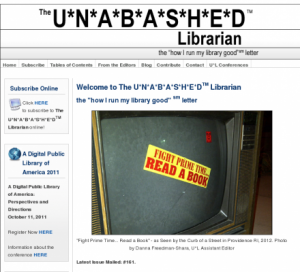The April 3rd class was interesting & productive.
I began the night by apologizing for canceling last weeks’ class (I was spending money at NE Mobile Book Fair). I reviewed what we had covered in the previous class, which led into a lecture on the various friendships that Bilbo develops in The Hobbit. This went on for about 10 minutes.
One of the inmate participants then continued his discussion of the ‘weather report’ concept from last week. A ‘weather report’ is how you measure your feelings and state of mind when you first rise and shine in the morning; then you monitor your behavior toward the Other accordingly. This same person also shared about his brief stay in Segregation since the last class, and how even though he was lugged for an offense, he refused to allow his baser nature and aggressive words to exacerbate the situation. Which is precisely why he spent only a few days away instead of weeks or months.
I then spoke of the THINK FIRST mechanism as a process, and of expectations; that everyone is incompetent to instantly prefect the method. Change takes time, like getting a river to run a new course. I told him it was miraculous that she was even sharing her thought life with him, because so many young people zealously guard thoughts and feelings. He thought tat he’d like to get an extra copy of the handout to send her. I gave him another.
 This served as a segue to the first handout, “It’s All About Character.” One man said he never believed that words, simple words, should be considered along the same lines as physical action, but said he could understand how words are emotionally-laden and can lead to altercations.
This served as a segue to the first handout, “It’s All About Character.” One man said he never believed that words, simple words, should be considered along the same lines as physical action, but said he could understand how words are emotionally-laden and can lead to altercations.
That’s a step in the right direction.
Another inmate spoke of how his daughter is taking the right physical steps (college) to better her circumstances, but worried that her negative inner thought life — which she shares with him — might be molding her character in undesired ways. I said that it was miraculous that she was sharing her thought life with him, as young people tend to zealously guard their thoughts and feelings. He concluded by saying that he wished he had another copy of the handout to mail to her, so I gave him another.
Just before the break at 7:15, another man voiced as how he believed that I was talking too much tonight, and not allowing enough time for others to share their views. This man took five minutes to express this.
During the 15-minute break, my class assistant spoke to another member of the class who said he disagreed that I was monopolizing the discussions. His view is that he class is just as much for me as it is for the benefit of the inmate participants. He further stated that one of the reason that he enjoys my lectures because he gets “jewels” when he listens to me. He finished by telling the assistant that he’s applying the THINK FIRST method in his daily prison life, because he will be released in a few months and wants this technique to become as much a second nature to him as possible before he regains his freedom.
When class resumed, we spent the remaining 45 minutes reading out the homework assignment called “Conflict Resolution: Bilbo’s Decision.” Each student was given a summary of the scene in which Bilbo makes up his mind to take the Arkenstone to Bard and the elven King. They were then directed to use each step of the THINK FIRST method to get into Bilbo’s head and see how he arrived at his decision. We read five of these assignments before movement was called at 8:15, which requires each inmate to return to their housing units.
Before they left, we distributed the next assignment called “Conflict Resolution: Previous Choices.” This asks each man to isolate a time in the past where they were thinking and acting in a criminal way, and then apply the THINK FIRST method to understand how that situation could have been avoided.
Before they leave, I tell them “Good class” and ask them to give themselves a hand, which they do. It’s a nice, encouraging way to end each class night.


